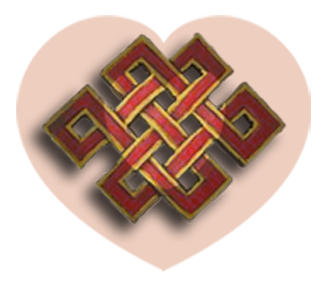Healing My Wounds of Christianity
Looking back, a primary area of wounding and healing I have had to resolve was in my relationship to Christianity.
I was born to parents who were Christians in the same way their parents were, namely, identifying themselves as Roman Catholics and going to church on Sunday. As a child I annoyed my parents with questions about church, God, Mary, Jesus and the old priest who snuck outside during mass and smoked cigarettes.
I was confused that God was supposed to be a good thing but when his last name was Dammit he was a bad thing.
If God was so good why was church was so boring and held on a weekend? Maybe God didn’t care about kids. If he did he wouldn’t have made me wear such uncomfortable clothes in “his house.” If he cared about kids why did we all have to stare at pictures and statues of his only son, bloody and twisted in pain, while we were being preached to about love?” This very image and forced belief mutated into a deep confusion between what my gut was telling me to believe and what others were trying to sell me.
Throughout my childhood I observed Christian people acting very Christian at church and acting very un-Christian outside of church. These observations of what I called hypocrisy tainted my young idealism. It seemed that “normal” was talking the talk but not walking the walk.
This also had a key role in my learning to distrust and rename my truth-something that had far reaching effects, especially when compounded with the fact that my mother was always trying to “reframe” my father’s anger. “He isn’t really angry, he is just confused” she would tell me in my room, after he had sent me away from the dinner table for some unspoken reason.
With the God the Father’s words being misconstrued as well as my father’s words being misconstrued, it is no wonder a prime area of wounding for me was in my relationships with men as well as Christianity. I gave men authority when they didn’t deserve it. I “sacrificed” my needs so they could get theirs met. It was much later, during my M. Div. studies, where I became aware that many female theologians have written about this very thing.
On an even broader view, I learned to distrust Christians and Christianity and usually had nothing good to say about either. I found solace with Eastern Religions. My chosen tradition of nearly 45 years, Tibetan Buddhism, eventually led me to a spiritual crisis that would in turn, lead me to heal my rift with Christianity.
In 2002, after a visit to Nepal, I found out that a large portion of the thousands of dollars I had raised for a small monastery had been misappropriated by the senior monk. One of my first realizations was how I had projected so much idealism on these monks. Though I had rejected Christianity in part for its topdown hierarchy and the hypocrisy I saw in the parishioners of my family church, the whole dynamic was staring me in the face again with members of my tradition of choice. I realized that I had rejected Christianity without recognizing or healing the wounds I attributed to it. Even further into my personal psychology, I realized that some of the idealism I had favored upon the monks in red was leftover from my unresolved male authority issues.
I was spiritually adrift for a few years. I was forced to identify the core of my spiritual values. Though I never lost my love for the Dharma, I realized the essence of the teaching “follow the teachings, not the teachers.” It also helped me recognize the far reaching effects of ignorance, and to contemplate the survival ethics common to people of third world countries in trying to understand how these embezzling monks could rationalize their mishandling of funds.
My now deceased housemate Jay often talked to me about the difference between Christianity and “Churchianity” and invited me to share his vision of Jesus as Shiva. Finally, during my Interfaith studies, I saw my initial wounding standing separate from the teachings of Christianity and was brought back to the love of Mary and Jesus.
I remembered Jesus as a Bodhisattva, and Mary as Tara. I remembered the depths of my mother’s faith in Mary.
This healing enabled me to more fully serve the people I work with, especially in prison.
